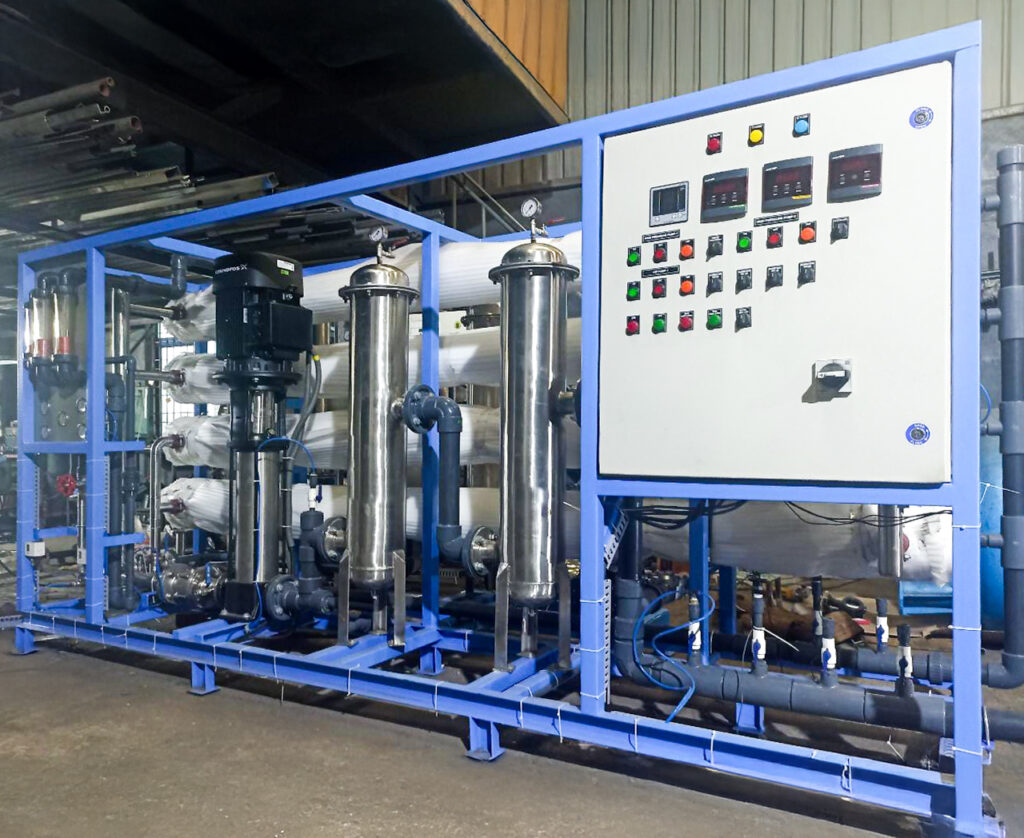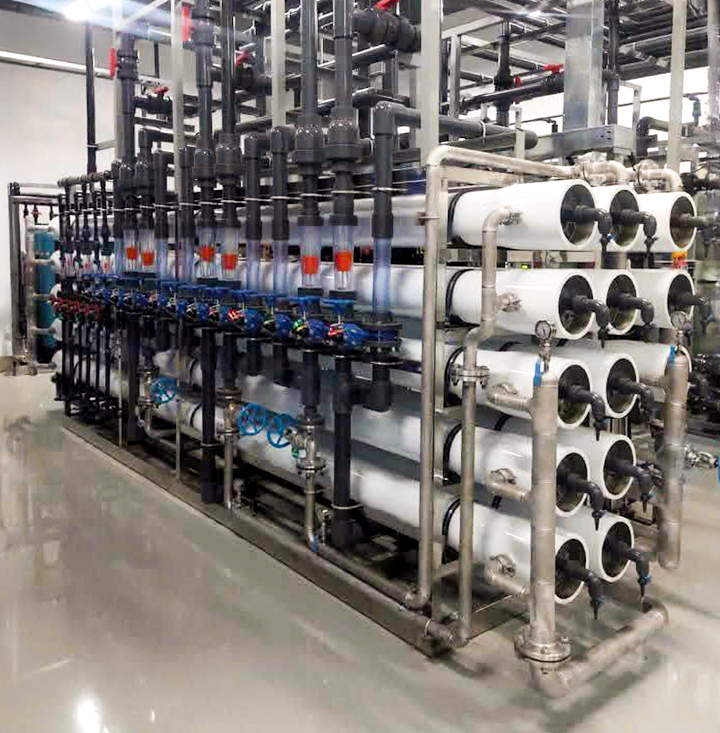Clean water is essential for any industrial operation. Whether it’s used for cooling systems, product processing, or equipment cleaning, poor water quality can seriously affect efficiency and output.
Reverse Osmosis (RO) plants are one of the most effective solutions available for consistently producing high-purity water.
RO systems are often combined with other technologies like ultra filtration, water softening systems, and zero liquid discharge (ZLD) units to form a complete industrial water treatment setup.
Let’s take a closer look.
What Does a Reverse Osmosis Plant Do?
A reverse osmosis plant uses a special semi-permeable membrane to remove unwanted substances from water. When pressure is applied, clean water passes through the membrane while impurities like salts, bacteria, and heavy metals are left behind.
This makes RO systems ideal for industries where water purity plays a key role.
Industries that rely on RO plants include:
- Pharmaceutical manufacturing, where product quality depends on clean water
- Food and beverage units, where hygiene and taste are top priorities
- Textile units, where water quality affects dyeing and finishing
- Power plants and electronics, where mineral-free water prevents equipment issues
For specific applications in the power and textile sectors, see our blog on Reverse Osmosis Plant Applications in Power & Textile Industries

Why Industrial Water Needs More Than Basic Filtration
Industrial processes use large volumes of water that can pick up chemicals, oils, solids, and other contaminants along the way. Without proper treatment, this leads to:
- Scaling and corrosion in pipelines and equipment
- Frequent maintenance and downtime
- Poor product quality or contamination
- Environmental violations from untreated discharge
RO plants help solve these challenges by providing high-quality water and protecting industrial systems.
Key Benefits of Using RO Plants in Industries
1. Cleaner Water
RO systems remove up to 99% of dissolved salts and impurities. The result is purified water that’s safe for sensitive applications.
2. Fewer Equipment Issues
Hard water can cause scale and damage over time. RO plants help prevent this. When used with a water softening system, they offer even better protection.
3. Lower Energy and Maintenance Costs
Modern RO setups are designed to use less energy and require fewer repairs, saving money in the long run.
4. Better Environmental Practices
Many industries are now required to reuse their wastewater. By pairing an RO plant with a zero liquid discharge (ZLD) system, you can treat and reuse nearly all of your water with minimal waste.
How RO Plants Work with Other Water Treatment Systems
Ultra Filtration as a First Step
Before water enters the RO membrane, it often goes through ultra filtration (UF). This removes suspended particles and large contaminants, improving the efficiency and lifespan of the RO unit.
Softening Hard Water
RO membranes can wear out quickly if the water is too hard. A water softening system removes calcium and magnesium before they cause damage, helping the RO plant perform better.
Achieving Zero Liquid Discharge
RO plants still produce brine as a byproduct. A ZLD plant treats this waste further, recovering more usable water and reducing the final discharge to nearly nothing.

Choosing the Right RO Plant for Your Industry
Every industry has different water requirements. Before choosing an RO system, think about:
- The quality of your current water supply
- How much treated water you need each day
- What systems are already in place
- Compliance needs based on your region or industry
A good water treatment provider can help you design a setup that fits your operations, instead of just installing a generic solution.
Final Thoughts
A reverse osmosis plant is more than just a filtration system. It’s a long-term solution that helps maintain clean processes, protects machinery, and supports sustainability goals.
When combined with ultra filtration, water softening, and ZLD technologies, it becomes a complete water management strategy that improves productivity and reduces environmental impact.
Need Help with Your Water Treatment Setup?
We can help. Whether you’re planning a new system or upgrading an old one, our team can guide you toward the best RO solution for your industry and your budget.

